-
 Tate Modern gifted 'extraordinary' work by US artist Joan Mitchell
Tate Modern gifted 'extraordinary' work by US artist Joan Mitchell
-
Mexico president welcomes being left off Trump's new tariffs list
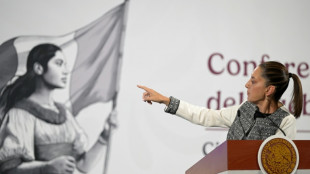
-
 Tonali eager to lead Newcastle back into Champions League
Tonali eager to lead Newcastle back into Champions League
-
Lesotho hardest hit as new US tariffs rattle Africa
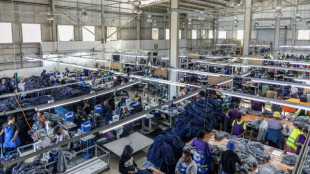
-
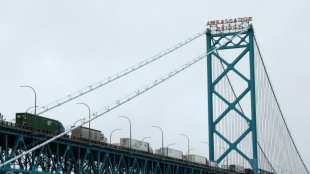 Stellantis pausing some Canada, Mexico production over Trump auto tariffs
Stellantis pausing some Canada, Mexico production over Trump auto tariffs
-
Rising odds asteroid that briefly threatened Earth will hit Moon

-
 Italy reels from Brignone broken leg with Winter Olympics looming
Italy reels from Brignone broken leg with Winter Olympics looming
-
Is the Switch 2 worth the price? Reviews are mixed

-
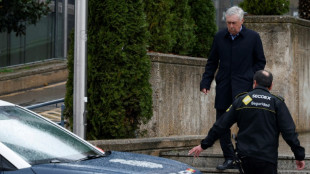 Ancelotti’s tax trial wraps up in Spain with prosecutors seeking jail
Ancelotti’s tax trial wraps up in Spain with prosecutors seeking jail
-
Civilians act to bring aid to Myanmar earthquake victims

-
 US trade gap narrows in February ahead of bulk of Trump tariffs
US trade gap narrows in February ahead of bulk of Trump tariffs
-
Stocks, dollar and oil sink as gold hits high on Trump tariffs
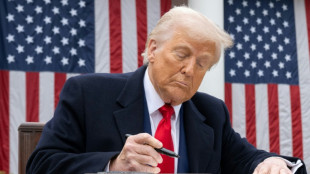
-
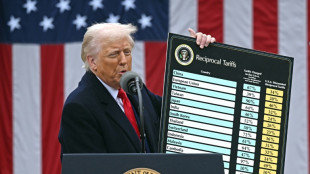 Countries eye trade talks as Trump tariff blitz roils markets
Countries eye trade talks as Trump tariff blitz roils markets
-
Arsenal defender Gabriel out for rest of the season

-
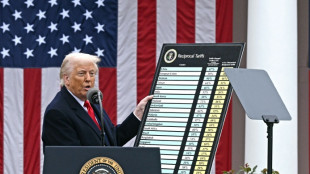 Trump says US to emerge 'stronger' as markets tumble over tariffs
Trump says US to emerge 'stronger' as markets tumble over tariffs
-
Wiegman says Belgium games can aid England's women's Euros title defence

-
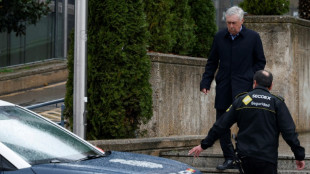 Prosecutors demand jail term for Ancelotti for tax fraud
Prosecutors demand jail term for Ancelotti for tax fraud
-
Syria accuses Israel of deadly destabilisation campaign

-
 Skiing World Cup champion Brignone suffers broken leg
Skiing World Cup champion Brignone suffers broken leg
-
Iconic Paris hotel Lutetia taken over by Mandarin Oriental
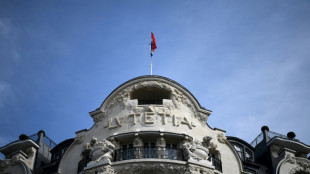
-
 Nepal capital chokes as wildfires rage
Nepal capital chokes as wildfires rage
-
AI could impact 40 percent of jobs worldwide: UN
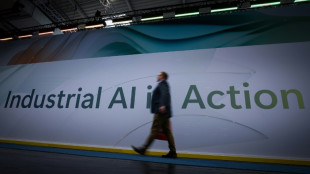
-
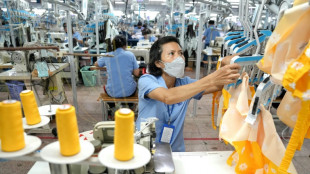 'Shocking': US tariffs worse than feared for Vietnamese exporters
'Shocking': US tariffs worse than feared for Vietnamese exporters
-
Liverpool's Slot happy to let Premier League title bid take its course

-
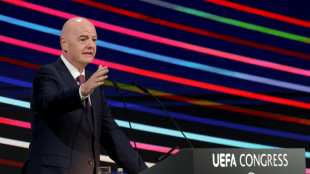 USA sole bidder for 2031 Women's World Cup, UK set to host in 2035
USA sole bidder for 2031 Women's World Cup, UK set to host in 2035
-
Tesla sales fall again in Germany amid Musk backlash
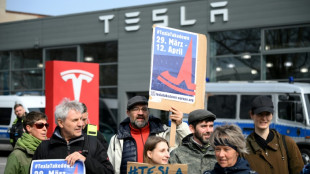
-
 Italy's skiing champion Brignone air-lifted to hospital after crash
Italy's skiing champion Brignone air-lifted to hospital after crash
-
US trade partners eye talks after Trump tariff blitz
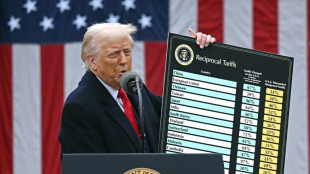
-
 Evenepoel adds Tour de Romandie to comeback programme
Evenepoel adds Tour de Romandie to comeback programme
-
Defending champion I Am Maximus heads final field for Grand National

-
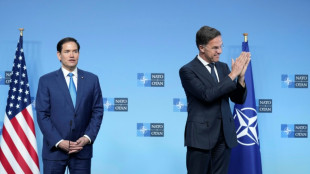 Rubio says US committed to NATO - but tells allies to spend more
Rubio says US committed to NATO - but tells allies to spend more
-
Dollar, stocks sink as gold hits high on Trump tariffs
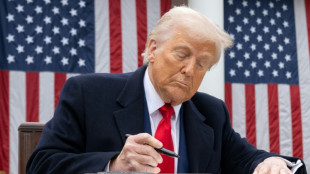
-
 India eyes opportunity despite Trump tariffs hit
India eyes opportunity despite Trump tariffs hit
-
UK show reveals tawdry tale of Shakespeare folio theft

-
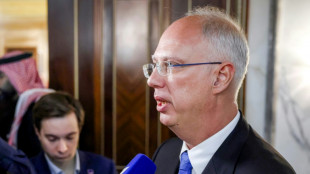 Top Russian official in Washington for talks on improving ties
Top Russian official in Washington for talks on improving ties
-
Sinner's former physio to blame for failed dope tests, says ex-physical trainer

-
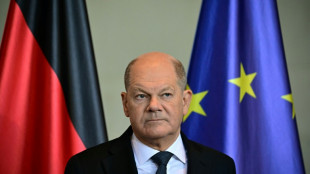 Germany slams Trump tariffs, US tech titans in crosshairs
Germany slams Trump tariffs, US tech titans in crosshairs
-
Trump tariff blitz sparks retaliation threats, economic fears
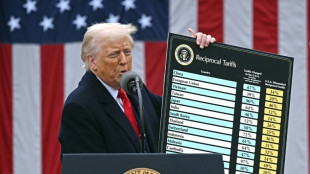
-
 Search for Malaysia's long missing MH370 suspended
Search for Malaysia's long missing MH370 suspended
-
Hungary announces ICC withdrawal as Israel's Netanyahu visits
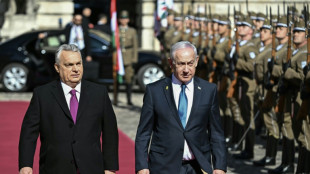
-
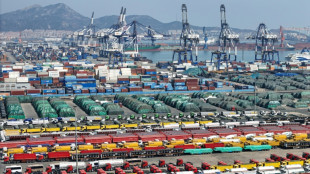 Trump's tariffs sting Asian giants, including US allies
Trump's tariffs sting Asian giants, including US allies
-
India says 'examining the implications' of US tariffs

-
 Evenepoel set to make injury return at Tour de Romandie
Evenepoel set to make injury return at Tour de Romandie
-
USA sole bidder for 2031 Women's World Cup, UK set to host in 2035 - Infantino
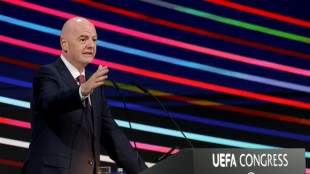
-
 McLaren's Norris says it's 'our turn' for success
McLaren's Norris says it's 'our turn' for success
-
Lessons and liquids: buried alive in Myanmar's earthquake

-
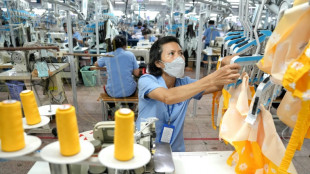 Trump tariffs spark fears for Asian jobs, exporting sectors
Trump tariffs spark fears for Asian jobs, exporting sectors
-
Stocks and dollar sink, havens rally as Trump tariffs fan trade war
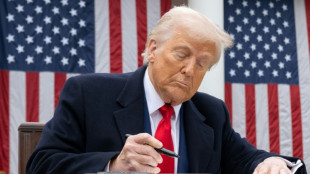
-
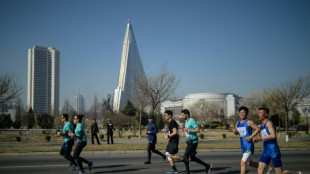 Runners fly to North Korea for first post-Covid Pyongyang Marathon
Runners fly to North Korea for first post-Covid Pyongyang Marathon
-
Hamilton rubbishes claims he's lost faith in Ferrari
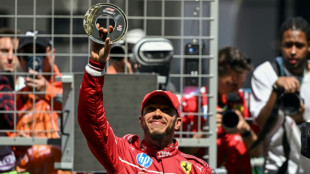
US Federal Reserve with “announcement”
In a widely-followed press conference, the US Federal Reserve (Fed) announced a significant economic contraction in order to control the growing risk of inflation in the United States. With this decision, the central bank is reacting to persistently high rates of inflation and a rapidly changing economic situation. At the same time, the measure sends a signal to companies and financial markets: after a phase of historically low interest rates and extremely loose monetary policy, the course could now change in the direction of a more restrictive phase.
Rising interest rates and tighter monetary policy:
Contrary to the course of recent years, when the Federal Reserve supported the economy with low interest rates, the focus is now on interest rate hikes and a reduction in the Fed's balance sheet. This is intended to dampen excessive demand, slow credit growth and contain inflation. Fed Chairman Jerome Powell emphasized that these steps are necessary to ensure sustainable and stable economic development over the medium term.
Market analysts see the announced contraction as a significant policy shift. Many investors had already expected interest rate hikes, but the clear focus on a restrictive policy exceeded the expectations of some observers. As a result, stock markets came under short-term pressure and the US dollar depreciated slightly against other leading currencies.
Background: Inflation and economic uncertainties:
The rate of inflation in the US has reached record levels in recent months. Supply bottlenecks, rising energy prices and high consumer demand had noticeably driven up prices. In addition, numerous economic stimulus packages initiated in response to the coronavirus crisis have stabilized the economy, but have also led to a high amount of money in circulation.
With the announcement of an economic contraction, the Fed is seeking a balance: on the one hand, price stability and a reduction in speculative bubbles should be ensured, while on the other hand, the Fed wants to avoid an excessive cooling of the economy. Jerome Powell emphasized that developments are being monitored closely and that the Fed is prepared to take action if necessary.
Impact on companies and consumers:
A more restrictive monetary policy primarily affects companies that have relied on cheap credit. For firms that finance growth through debt, costs could now rise, which could slow investment and expansion in some sectors.
Consumers are also likely to feel the effects of rising interest rates, especially real estate buyers and credit card customers. Higher mortgage rates could put the brakes on the residential real estate market and make buying a home more expensive.
At the same time, however, there are also positive aspects: an effective fight against inflation preserves the purchasing power of the population and can reduce speculation risks. In particular, people with savings could benefit from higher interest rates, provided that financial institutions adjust their rates.
Criticism and outlook:
Not all experts consider the Federal Reserve's move to be appropriate. Some critics warn that curbing growth too quickly could jeopardize new jobs and slow down the economic recovery after the pandemic. The fear is that if the US economy cools more sharply than expected, the labor market could deteriorate again and high inflation could only moderate moderately.
Nevertheless, many experts see the decision as overdue. In view of record inflation and a stock market environment that is overheated in some areas, there is a need for action to stabilize the fundamental data again. The coming months will show whether the US economy can strike a balance between stabilizing and avoiding a recession – or whether a more severe downturn is looming.
Conclusion:
The Federal Reserve has sent a clear signal to markets and consumers with its announcement of an economic contraction. Higher key interest rates and a tighter monetary policy should curb the record inflation and enable a more balanced economy. At the same time, there are risks for growth and the labor market if the economic environment deteriorates more quickly than expected. It remains to be seen whether this balancing act will be successful, but it is clear that the latest step marks the beginning of a new phase in US monetary policy.

Dictator Putin threatens to destroy Kiev

Will Trump's deportations be profitable?

Ishiba's Plan to Change Power in Asia

EU: Online platforms to pay tax?

EU: Energy independence achieved!

EU: Record number of births!

EU: Military spending is on the rise!

Crisis: EU bicycle production drops!

EU: Foreign-controlled enterprises?

EU DECODED: Deforestation law’s trade-offs

Underwater Wi-Fi: European startups woo investors



